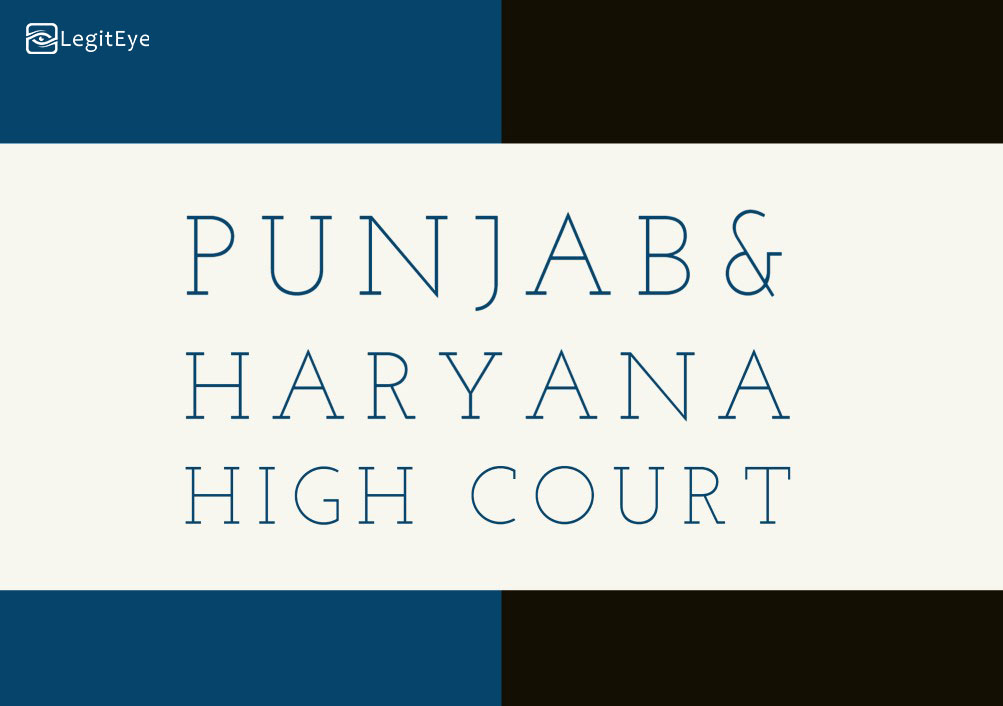In CRM-M-24775-2022 (O&M)-PUNJ HC- Protection against double-jeopardy is not available unless judgment in previous case is based on same charge, reaffirms P&H HC Justice Suvir Sehgal[02-06-2022]

Read Order: Vikash alias Vikash Kumar v. State of Haryana and Another
Monika Rahar
Chandigarh, June 18, 2022: The Punjab and Haryana High Court has recently reiterated that the test to ascertain whether the two offences are the same, is not identity of the allegations but identity of the ingredients of the offence.
Further, Referring to the judgment of the Top Court in Sangeetaben Mahendrabhai Patel versus State of Gujarat, Justice Suvir Sehgal asserted, “Motive for committing offence cannot be termed as ingredients of offences to determine the issue. The protection is not available unless the judgment in the previous case is based on the same charge.”
The Court was called upon to decide a petition filed under Section 482 of the Code of Criminal Procedure, 1973 (“the Code”) seeking quashing of an FIR for offence under Section 376 (2) (n), 376 (3) IPC and Section 6 of Protection of Children from Sexual Offences Act, 2012 (“the POCSO Act”) along with all the other proceedings emanating from the same FIR.
The present FIR was a result of a complaint moved by the father of the prosecutrix accusing the present petitioner of kidnapping and enticing his daughter on the pretext of marriage.
Thereupon, Section 365 IPC was deleted and Sections 363 and 366-A IPC were added. The prosecutrix was recovered after the lapse of five days, following which her statement was recorded under Section 164 of the Code; she was medico legally examined and her custody was handed over to her parents.
Thereafter, Section 8 of POCSO Act was invoked and the present petitioner was arrested. Upon submission of the final report, the petitioner was charged under Sections 363, 366-A IPC and Section 12 of POCSO Act to which he pleaded innocence and claimed trial.
The Petitioner was eventually found guilty of offence under Section 363 of IPC and he was acquitted of the offence under Section 11 of POCSO Act. He was ordered to undergo rigorous imprisonment for five years, besides, fine of Rs. 10,000/- and in default of payment thereof, a further rigorous imprisonment for a period of three months.
The conviction and sentence was challenged by the petitioner before the High Court in a criminal appeal which has been pending.
During the course of the trial, the prosecutrix was produced before the trial Court for recording of her testimony, when it was found that she was pregnant. Her pregnancy test was ordered to be conducted by the trial Court and when the result was found to be positive, the impugned FIR was registered.
The Counsel for the petitioner contended that the subject matter of both the FIRs was the same and mere addition of a few more offences, would not make the substratum of the FIRs different.
By making a reference to Section 300 of the Code, the Counsel contended that once the petitioner was convicted for an offence, which conviction was in force, he could not be tried again for the same offence or on the same facts for any other offence for a different charge.
On the other hand, the State Counsel submitted that the petitioner was accused of a serious offence of sexual assault on the prosecutrix during the period when he was on bail in the first FIR. The Counsel added that the prosecutrix was a minor and she delivered a child.
Also, it was the Counsel’s case that the challan was presented and charges were framed against the petitioner, who approached the Court just before the prosecution evidence was to commence. Lastly, the Counsel submitted that the offences in both the FIRs were different and the bar under Section 300 of the Code was not attracted.
After considering the rival submissions, the Court opined that the impugned proceedings were initiated against the petitioner for rape and sexual assault of a minor during his temporary release from custody in the first FIR and that the second offence, which was much graver and based on a different set of facts, was committed by the petitioner during the trial of the earlier one.
Insofar as the first conviction was concerned, the Court noted that besides Sections 363 and 366-A, the petitioner was tried for sexual harassment of the prosecutrix under Section 11/12 of POCSO Act but he was acquitted.
The allegation in the second FIR was based on different facts, which constituted a different offence, observed Justic Sehgal while also adding that the substratum of the two FIRs was not the same and the doctrine of double jeopardy as enshrined in Section 300 of the Code would have no application.
Further, on the legal points involved in this case, the Court opined that the test to ascertain whether the two offences are the same, is not identity of the allegations but identity of the ingredients of the offence.
“Motive for committing offence cannot be termed as ingredients of offences to determine the issue“, held the Bench while also asserting that the protection is not available unless the judgment in the previous case is based on the same charge.
Coming to the present case, it was poitned out that there was no allegation of sexual assault against the petitioner in the previous proceedings, though there might have been some overlapping of the facts in both the cases but the offences were entirely different.
Thus, the Court held that the subsequent proceeding, therefore, was not barred by Section 300 of the Code.
The petition was thus dismissed.
Sign up for our weekly newsletter to stay up to date on our product, events featured blog, special offer and all of the exciting things that take place here at Legitquest.




Add a Comment